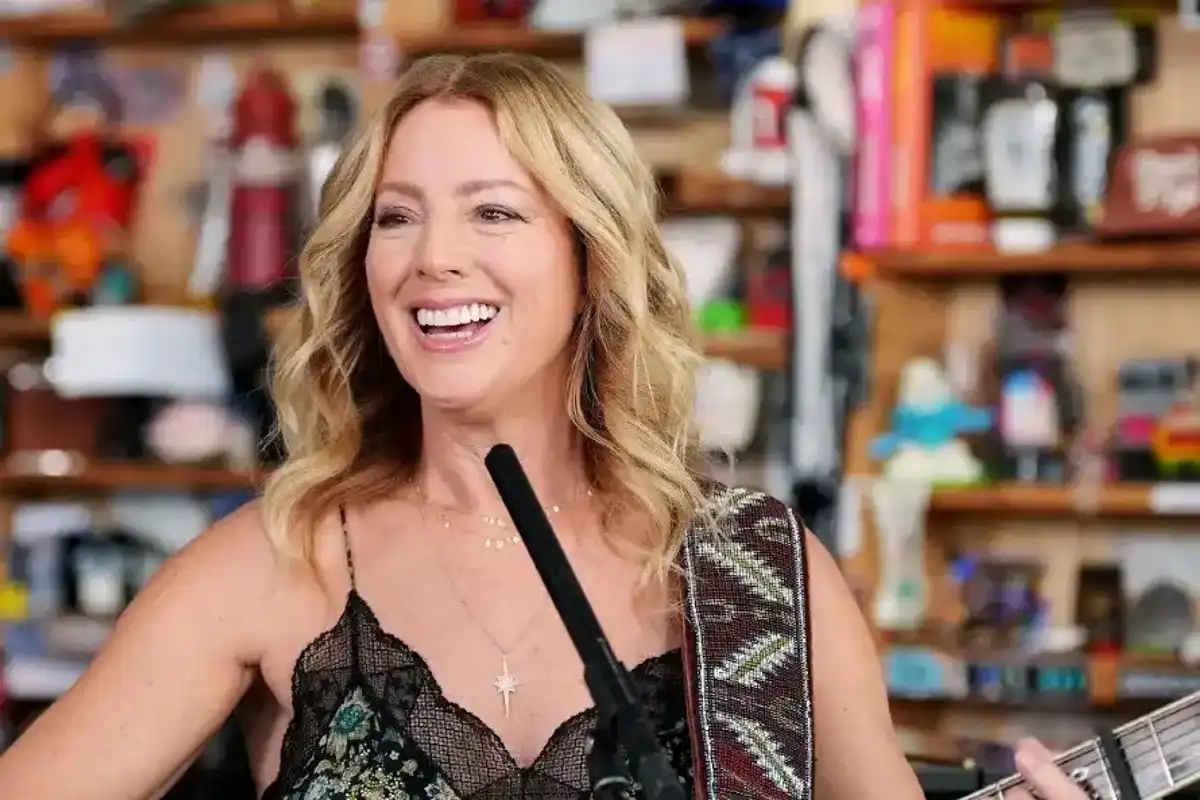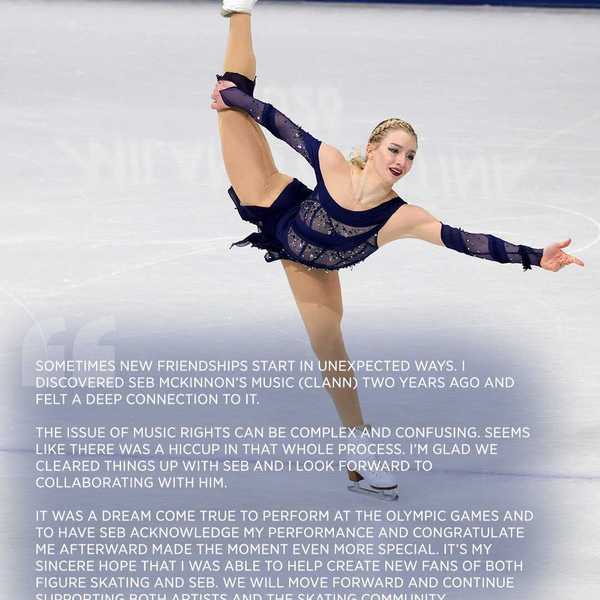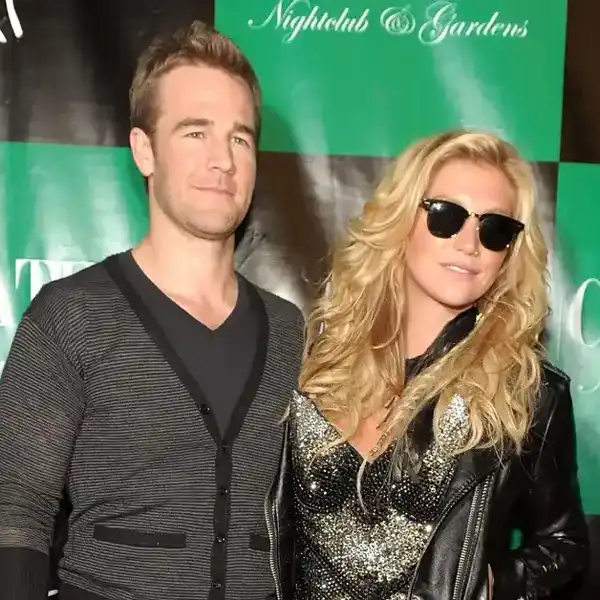Jim Cressman: Canada's Music Biz Superstar
Invictus Entertainment is a powerhouse company based in western Canada that will promote 700 shows and sell 180K concert tickets this year. Cressman runs the show and he has a stable of acts he promotes. In the following Q&A, he offers sage advice about how to be a success, and where not to point your career compass.

By FYI Staff
Invictus Entertainment Group recently celebrated its 6th year anniversary. During that time the company has won 12 Canadian Country Music Association Awards: 5 for the Ron Sakamoto talent buyer/promoter of the year, 4 for Agency of the Year and 3 for Management company of the year. Additionally, Invictus was voted Canadian Music Week Management Company of the Year across all genres at this year’s CMW, and Cressman earned distinction as International Talent Buyer of The Year at the International Entertainment Buyers Association Convention in Nashville in 2017. In the following Q&A he sets out where he’s headed with his company, what gave him his fire in the belly and along the way he offers sage advice to artists about how to promote and build their careers.
That's quite the awards record you have ...
It’s flattering, but the ‘kiss of death’ in this business is proverbially drinking your own Kool-Aid. We choose to balance the euphoria of those wins with the truth and practicality that it’s creativity, hard work and execution that gets my team and I the accolades. The other reality is that people too often view the happenings in our business like a ‘snapshot,’ rather than a ‘movie.’ When you are a newcomer to the CCMA industry awards, all you see is Invictus winning, and that can create a ‘snapshot’ perception, but many of those people don’t know that for over a decade, we were nominees without a trophy. That’s an important part of the backstory. As we stuck to the game plan of actions, results and building legacy cohesively with our clients, and the wins began to trickle in, many people had no idea of the groundwork that had been laid for years to get us to the point where we receive recognition.
Let's talk about the Brett Kissel tour. Part one just wrapped. There's a rumour this tour could eclipse 100 dates
Yes, we sold out 93 percent of the tickets on the 51 dates in the first leg, which means we didn’t over-reach. The temptation is always there to jump up to big rooms, once you have some momentum, but we’ve been very cautious in developing Brett’s hard ticket.
We’re about to announce part 2 of the tour which will include the far north and the east coast. Then we will announce part 3 which will be more of a deeper tertiary theatre play across Canada. All age shows. Real hard tickets. No gimmicks. Louis O’Reilly, who manages Brett, has done an impressive job in garnering sponsorship for this tour. Brett Kissel will play 100 hard ticket tour dates in Canada which could very well be a record for the amount of comprehensive geographic coverage for a tour. There’s a two-prong impetus to this strategy. We are building a well-capitalized war chest for him to pursue his career in the US from a position of certainty and strength - through 2019. Besides that, it’s the best method to proactively promote his forthcoming 2020 arena tour is to give consumers in remote markets a taste of his live show which gets better with every tour.
My assertion is that those fans will bring more people with them to the 2020 tour, and between now and then Brett will score another 5 or 6 big translating hits at radio, win more awards, ramp up tv appearances, and continue to entrench himself in the consciousness of the consumer. There is major demand for Brett in the marketplace, and our strategy is to judiciously feed that demand, but not exceed it - so we create a hunger in the market for people to see him again in two years. Most of the venues are 1500 seats and under, so we’re selling them out and creating more hype and enthusiasm for him to come back and play bigger rooms. There’s still a supply and demand marketplace purity to this business, and we often ignore that, cause we’re all in a rush, or we don’t want to manage the expectations of our artists and do what’s best for them in the long term.
Explain more about these supply and demand realities
In Canada we shove emerging artists down the throats of the consumer by placing them on festivals before there’s any market demand. As an industry, we replicate the same patterns over and over again of sending these emerging acts with one hit - or no hits - to play festivals at 12 noon slots for very little money. The act has no hits to resonate with the audience, so they end up pandering to them by playing covers to get some engagement, and that’s just not how you create legacy around your own art. By the time the act has built up some level of meaningful demand – that agents can actually leverage – they have already over played many of the festivals and end up being undervalued. In a nutshell, the artist usually loses money on the performance, plays to a sparse afternoon audience, and doesn’t have the hit songs to make enough of an impression to justify the investment into the show itself. It’s a diminishing return strategy that we’ve just accepted as an industry paradigm. It’s like, get a deal, release a song, harass the agent till she or he gets you on all the summer festivals, lose money and get very little audience resonance and engagement… Repeat, repeat.
We’re applying a “checkers” strategy in a game of “chess,” and I believe that’s at the root of our disproportionate ability to graduate more acts to the arena level.
Part of the problem is that most agents and managers don’t want to have the hard, honest conversations with their emerging acts about deploying patience and waiting to engage the consumer when you actually have art that is resonating.
The most extreme and best example of this working well, and building it properly is more than two decades old in the form of Shania Twain. When she released “Whose Bed Have Your Boots Been Under” there was demand for her to play. She let that build. When she released “Any Man Of Mine,” there was more demand for her to tour. She allowed that to build. She proceeded to release a cavalcade of massive hits from “The Woman In Me,” all while rehearsing and preparing to hit the road. She skipped the clubs, and low tier festivals slots and established herself as a legitimate headliner on her first tour.
What should the new strategy be?
I urge all artist to invest as much money as they can into promoting their socials. You can monetize attention. Social media is the modern equivalent of the Gold Rush. The people who claim the land first are going to win, and the stragglers are going to be relegated to relying on luck.
When Coca Cola, McDonalds and some of the massive blue-chip corporations stop buying tv ads and billboards and start pouring their marketing budgets into social media, the cost of the ads on Instagram and Facebook will skyrocket. Build your digital audience now. There’s still an 18-24-month window for artists to take advantage of the low prices of ads on these platforms, but it’s closing fast. Once you have thousands of engaged, sticky followers, you can mobilize them to ensure that your live shows have an actual audience of your fans and start to leverage your supply against the demand. It’s the most empowering time in history to be an artist, if you’re willing to use the tools available at your fingertips.
How can artists learn to take advantage of social media opportunities?
Educate yourself. There are online courses that you can pay for and an exhaustive library of free videos on YouTube explaining how the algorithms work and how you can maximize those to build your brand. There’s no excuse for an artist to refuse taking charge of a digital strategy in this day and age.
If an artist isn't social media savvy shouldn't they be able to rely on their team to execute?
Collaborate with your team, brainstorm, get creative, but in the early going all artists should own their own socials. Your content needs to be authentic and real, and some intern may not be able to accurately capture and communicate that on your behalf. I abide by the old 4-H mantra. “Learn to do by doing.” If you want to keep your team accountable, it’s important to be a practitioner in the space yourself, so that if you do choose to out-source some of your social media over time, you can determine whether or not they’re doing a good job. The only way you’ll know that is if you understand the process, and the way to understand it is to do it.
Is radio still important in breaking a star?
Radio is critical to the success of a country artist, but more and more we’re seeing a trend where it’s advantageous to build your own equity on a song before approaching radio. That might mean releasing it on socials, and testing the song, so radio programmers feel more confident about adding the track. Hit songs spark the journey to legacy. It’s that simple. It’s doesn’t matter how great your live show is, if you don’t have the hits to put asses in seats. A great example. I’m a huge fan of Neal McCoy. He had a handful of hits in the ‘90s and puts on of the best, high energy shows you’ll ever see. The show rivals Garth Brooks himself in terms of showmanship and polish.
Neal plays casinos. Garth plays stadiums. The difference between the two artists is a deep well of massive hits. Radio servicing strategies have changed a lot in the last decade. Our label seeks to create a story of success through socials and streaming before we approach radio. Give the programmers some confidence and concrete evidence that giving your artist a chance is a good investment by providing them with some ammunition before servicing the single. Again. Build the demand, then manage the supply.
Tell me about the industry insights video series you have initiated
Just under a year ago I started a video series aimed at dispersing practical, tactical information to emerging artists. I love this industry and if I can enrich the next generation of artists with some basic skills and knowledge so they’re encouraged to stick with it, it provides its own reward.
So much of our business is so cliquey and clandestine, and there are barriers to entry, so the videos arm artists with enough information to ask themselves better questions, make more empowered decisions and the fruit of that will bear itself out in a more evolved industry over time. It’s been amazing how established artists and industry people have stepped up to share their experiences and wisdom. We just completed our 40th video and the series has just under 600k views, which reaffirms my hypothesis that there was a need for this type of content in the marketplace. The videos are all available on YouTube and our Invictus Entertainment Group Facebook page. They’re all free.
Do you plan to develop a course or curriculum to sell to emerging artists?
I have no plan or desire to monetize this initiative. This business has been good to me and my family, and my only motivation is to give back. It feels right. Sometimes you have to chase that feeling and execute on it without an agenda.
Brett is having a great year. How are the other Invictus artists doing?
George Canyon, Gord Bamford and Aaron Pritchett all have tours in the pipeline. Gord just rejoined us after being with a few different companies over the past 6 years. Gord and I played football against each other when we were in high school. We go way back, and it’s good to have him home. He’s riding high and will be out on a blast of a tour themed around his new single “Dive Bar.”
George just serviced a new, neo traditional single that will appeal to true country fans. I’m very excited about that, and he will be on tour this fall as well.
We have a hot new release called “Worth A Shot,” from Aaron which could very well be bound for #1. It’s his time.
Emerson Drive is having their most active festival tour since 2008, and have another hit coming down the pike with “The Road.” Charlie Major is touring with Alabama this summer and is working on a commemorative release celebrating 25 years since the release of his ground-breaking album The Other Side.
Carolyn Dawn Johnson is busy and always creating and working on music. She’s such an icon. I am honored to work with her. Our development acts – Jordan McIntosh, Beamer Wigley and Cory Marquardt are all on the edge of becoming household names. Cory has a country rock project which could inspire an entirely new format. Think Eric Church & Brantley Gilbert meets the best of Kid Rock. Jordan is working on a pop record that’s insanely strong. Like a cross between Shawn Mendes and The Weeknd. Beamer just wrapped up a tour with Granger Smith in Canada and continues to make waves in Nashville. I could not be happier with where everyone is – at the moment.
In a business where loyalty can be hard to secure, how do you maintain a consistent roster?
First off, I love my clients and I am proud of the personal relationship I have with all them, but I don’t leverage my friendship with them against poor performance. I tell all my artists that “loyalty” is for family, spouses and friends. I prefer to be indispensable. I learned that if I crush for my clients and make them more money than anyone else by consistently delivering, I will have their loyalty as a by-product.
Invictus is an agency, management company, record label and promoter. What are the advantages of a one-stop shop?
We’re not a “one stop shop” for everyone. We always defer to whatever the best scenario is for our client. When they win, we win. Take Dan Davidson. We manage Dan, but Jason Furman at Feldman books him. When Dan came aboard as a management client, he was happy with the work Feldman was doing, and although we have an agency division in house, we deferred to his relationship with Feldman. Furman is doing a great job, and that was the right call.
We have Big Star recordings, but Brett Kissel is on Warner. Warner has done a tremendous job with Brett, so interfering with that would be stupid, imprudent and working against the best interest of our client.
Some of our clients are entirely in house. Aaron Pritchett has us for label, booking and management, and we’ve worked cohesively with him to crush it. Last year was his biggest year of touring in his entire career, and this guy gained national prominence in 2003. 15 years in, he has his best year. Unheard of. In his case, it makes sense to have all his services provided in house. Not the case for everyone. Bottom line, we are accountable, responsible, working in the best interests of our clients and we never allow financial greed to supersede the needs of the client. Pigs get fat. Hogs get slaughtered.
How do you guys manage to compete with Live Nation on your arena touring business?
By realizing I don’t need to directly compete with Live Nation. In many cases we collaborate with them, and when we do compete, we pick our spots and play to our advantages. Look at the Kip Moore story. He came to Canada as a headliner for the first time in 2015. Played some clubs. Now he’s headlining arenas and doing multiples in theatres. We worked with Red Light and CAA on a strategy that will see him headline more than 15 shows in Canada this year. The results speak for themselves, and we have a plethora of stories of how we get on board with artists, build the value and exceed their expectations. The other reality is, I own this company. I don’t answer to shareholders. I don’t have quarter to quarter stock prices to fret over. I can work with an artist’s camp on a decade by decade strategy and many people see the value in that.
Why haven't you joined Live Nation?
I have spoken to them a lot about that over the years. As individuals, I respect all of the people at Live Nation, and work with them quite often on projects. I haven’t joined them for the same reason I haven’t joined anyone else. I’m fulfilled by running my own show, being directly accountable, being an underdog of sorts, and investing in the needs of my clients. Every morning I get up at 5:30 am. I go to the gym. I sweat. I come home. I make breakfast for my daughters. I shower and set my shoulders for a heavy load. If someone deposits 10 million dollars into my account, I’m going to start the next day the same way I started the day previous. I don’t covet anything. I drive a nice car, I have a beautiful house, and my kids have all their needs met. When you realize that happiness is fleeting and that true fulfillment comes from having more responsibility stacked on your shoulders - not less - you start to appreciate everything. Even the obstacles and adversity. Besides that, I value our ability to remain nimble, and to be able to pivot, adapt, innovate.
Where does your entrepreneurial drive come from?
It’s intrinsic. I was raised on a farm. I didn’t grow up with money, but my parents instilled values and a work ethic that superseded anything they could have ever purchased for me. I’m forever grateful for that. When I was 11 years old, I noticed most of my neighbors were elderly and had wood burning fire places. Getting firewood for the winter wasn’t easy for them. I asked my dad for a bow saw. We lived on the edge of a bluff with a stand of poplar, birch and pine, and I knew I could cut and split deadfall and sell a product with almost zero overhead. I sold a pickup truck load of wood for fifty bucks and I was back-ordered most of the winter and fall. That’s when I realized that if I was willing to empathize with the needs of others, I could identify a niche in a market, help other people, and get paid! That mindset never left me.
What did your parents think when you entered this business?
They were cautiously supportive, but they raised me right. Lovingly, but they acted as a proxy for the ‘real world.’ Sometimes the ‘real world’ isn’t unicorns and rainbows. They wanted the best for me but didn’t understand why I basically made zero income for my first seven years and had three side jobs so I could eat and pay bills while I built a reputation and signed clients.
At one point my dad said “Jim, you’re 26. You have to get a real job.” I didn’t’ get defensive and self-righteous, which is always the temptation. I told him with unwavering conviction that I was designed to coach artists to fulfill their mandates, and act as a catalyst for them to reveal the gifts of their art to the world. He looked at me like I was speaking Russian or something and said “maybe you should be a firefighter. That’s a steady job, with pension and benefits.” He’s since atoned for having had that conversation – several times, but I am grateful my parents had the courage to challenged me. More kids need that honest, practical, no bullshit advice. Their willingness to do so gave me the fire in my belly that I needed to prevail.
Where do you think the business is heading in the next three to five years?
We’re on the cutting edge of developing new touring modules where artists are able to retain more of the cash they generate on road. Besides that, sponsorship, brand alignments, and monetizing social platforms. That’s the new frontier, and it will be big. We are living in the most empowering era for artist creativity, career autonomy, and potential financial gain, you just have to have the right strategy and the courage to execute.

















